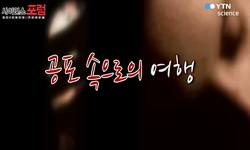In the face of compressed modernization and the enormous power of enforcing uniform military discipline, an individual's unique personality and free will had to be eliminated. In a world where national unity is emphasized, subjects whose deviant thoug...
http://chineseinput.net/에서 pinyin(병음)방식으로 중국어를 변환할 수 있습니다.
변환된 중국어를 복사하여 사용하시면 됩니다.
- 中文 을 입력하시려면 zhongwen을 입력하시고 space를누르시면됩니다.
- 北京 을 입력하시려면 beijing을 입력하시고 space를 누르시면 됩니다.

최인호 초기소설에 나타난 공포와 일탈의 감각 -바르트의 ‘중립’ 개념을 중심으로- = The Sense of Fear and Deviance in Choi In-ho’s Early Novels -Focused on the Concept of ‘Neutrality’ by Roland Barthes-
한글로보기https://www.riss.kr/link?id=A108924497
-
저자
고경선 (건국대학교 박사과정 수료)
- 발행기관
- 학술지명
- 권호사항
-
발행연도
2023
-
작성언어
Korean
-
주제어
최인호 ; 중립 ; 공포 ; 일탈 ; 「2와 1/2」 ; 「전람회의 그림 1」 ; 「무서운 복수」 ; Choi In Ho ; Neutrality ; fear ; deviance ; Picture 1 at an Exhibition ; Two and A Half ; Scary plural
-
등재정보
KCI등재
-
자료형태
학술저널
-
수록면
189-218(30쪽)
- DOI식별코드
- 제공처
-
0
상세조회 -
0
다운로드
부가정보
다국어 초록 (Multilingual Abstract)
The attempt to achieve balance between the world and the self through deviation is realized by introducing an outsider character and deviating toward abnormality, or is embodied through the demonstrations of college students wandering in an unprecedented era. However, deviations involve failure in the absence of a specific solution and have a structure of settling back in the institutional sphere. In the process, the subject who tried to deviate is subject to punishment, and a strategy to discipline as a conforming member of society is carried out. Nevertheless, the artist does not give up his optimistic gaze, such as expecting a transformation from 'some day' or 'someone'. This opens the way to reconsider the literature of Choi In-ho, who was evaluated as showing an escapist tendency while being disconnected from reality, and proves that the author is connecting with the times in his own way.
In the face of compressed modernization and the enormous power of enforcing uniform military discipline, an individual's unique personality and free will had to be eliminated. In a world where national unity is emphasized, subjects whose deviant thoughts and actions are not tolerated are inevitably exposed to various threats and become trapped in a fateful cultural landscape with ‘no alternative. The subject is bound to endure the present within the permitted behavioral pattern or be eroded by fear. Therefore, the deviation of the subject in Choi In-ho's early novels should be understood as a struggle to escape fear. Deviation is a sense of rebellion to break away from the current status, but it does not necessarily mean active resistance. Rather, it is like a desire for self-preservation to escape from the mode of subjugation. Therefore, the artist's will to refuse to be accepted in one direction can be understood as 'neutrality (Le Neutre)', which pursues one's own way of existence and holds the possibility of liberation from social regulations.
The attempt to achieve balance between the world and the self through deviation is realized by introducing an outsider character and deviating toward abnormality, or is embodied through the demonstrations of college students wandering in an unprecedented era. However, deviations involve failure in the absence of a specific solution and have a structure of settling back in the institutional sphere. In the process, the subject who tried to deviate is subject to punishment, and a strategy to discipline as a conforming member of society is carried out. Nevertheless, the artist does not give up his optimistic gaze, such as expecting a transformation from 'some day' or 'someone'. This opens the way to reconsider the literature of Choi In-ho, who was evaluated as showing an escapist tendency while being disconnected from reality, and proves that the author is connecting with the times in his own way.
참고문헌 (Reference)
1 최인호, "황진이-최인호 중단편소설전집2" 문학동네 2002
2 서세린, "합치라는 환영-대학생 담론과 1970년대 최인호 문학-" 국제한국문학문화학회 (32) : 161-192, 2022
3 오세영, "한국현대詩사" 민음사 398-, 2007
4 최인호, "타인의 방-최인호 중단편 소설전집1" 문학동네 2002
5 곽상순, "최인호 중편소설에 나타난 자유의 문제 -「무서운 복수(複數)」와 「깊고 푸른 밤」을 대상으로" 한국현대소설학회 (77) : 37-66, 2020
6 김창남, "청년문화의 역사와 과제" 문화과학사 173-185, 2004
7 박진우, "중립의 욕망 : 롤랑 바르트, 정치적 삶과 방식에 대하여" 21 (21): 228-247, 2017
8 김진영, "중립 개념을 통해 본 롤랑 바르트의 사진론-『밝은 방』을 중심으로" 서울대 2016
9 롤랑 바르트, "중립 : 콜레주 드 프랑스에서의 강의 1977-78" 동문선 36-105, 2004
10 김지혜, "조숙(早熟)과 만숙(晩熟)의 경계 - 1970년대 최인호 소설을 중심으로-" 중앙어문학회 59 : 247-273, 2014
1 최인호, "황진이-최인호 중단편소설전집2" 문학동네 2002
2 서세린, "합치라는 환영-대학생 담론과 1970년대 최인호 문학-" 국제한국문학문화학회 (32) : 161-192, 2022
3 오세영, "한국현대詩사" 민음사 398-, 2007
4 최인호, "타인의 방-최인호 중단편 소설전집1" 문학동네 2002
5 곽상순, "최인호 중편소설에 나타난 자유의 문제 -「무서운 복수(複數)」와 「깊고 푸른 밤」을 대상으로" 한국현대소설학회 (77) : 37-66, 2020
6 김창남, "청년문화의 역사와 과제" 문화과학사 173-185, 2004
7 박진우, "중립의 욕망 : 롤랑 바르트, 정치적 삶과 방식에 대하여" 21 (21): 228-247, 2017
8 김진영, "중립 개념을 통해 본 롤랑 바르트의 사진론-『밝은 방』을 중심으로" 서울대 2016
9 롤랑 바르트, "중립 : 콜레주 드 프랑스에서의 강의 1977-78" 동문선 36-105, 2004
10 김지혜, "조숙(早熟)과 만숙(晩熟)의 경계 - 1970년대 최인호 소설을 중심으로-" 중앙어문학회 59 : 247-273, 2014
11 죠지 브렌커트, "정치적 자유" 세종출판사 246-, 2002
12 에리히 프롬, "자유로부터의 도피" 휴머니스트출판그룹 171-172, 2021
13 조영란, "유랑하는 청년과 여성 몸-장소라는 로컬리티 - 최인호 초기 중단편 소설들을 중심으로" 한국여성문학학회 (33) : 387-411, 2014
14 지그문트 바우만, "유동하는 공포" 웅진씽크빅 2009
15 프랭크 푸레디, "우리는 왜 공포에 빠지는가? : 공포문화 벗어나기" 이학사 151-, 2011
16 임지현, "우리 안의 파시즘" 삼인 49-63, 2016
17 빌헬름 라이히, "오르가즘의 기능" 그린비 188-, 2005
18 김은하, "예외상태로서의 박정희 시대와 남성 주체의 형성 - 최인호의 초기작을 중심으로 -" 인문학연구원 (51) : 673-700, 2016
19 김상봉, "서로주체성의 이념" 도서출판 길 176-177, 2007
20 김명수, "발전주의는 언제 일상이 되었는가?: 도시 중산층 가정성의 확립으로 본 현대 정착의 양상과 시간성" 비판사회학회 (131) : 126-171, 2021
21 대통령비서실편, "박정희대통령연설문집제7집" 대통령비서실 50-52, 1970
22 황병주, "박정희 체제의 지배담론 : 근대화 담론을 중심으로" 한양대학교 대학원 2008
23 송은영, "대중문화 현상으로서의 최인호 소설 -1970년대 청년문화/문학의 스타일과 소비풍속" 상허학회 15 : 419-445, 2005
24 뱅상 세스페데스, "남자답지 않을 권리 : 강요된 남성성에 대한 철학적 도선" 명랑한 지성 77-, 2013
25 조지 L.모스, "남성의 이미지 : 현대남성성의 창조" 문예출판사 98-109, 2004
26 김종욱, "근대화의 유혹과 개인적 자유 사이에서의 줄다리기" 40-53, 2000
27 장문석, "근대의 경계에서 독재를 읽다" 그린비 2006
28 박형신, "감정은 사회를 어떻게 움직이는가 : 공포 감정의 거시사회학" 한길사 71-79, 2015
29 잭 바바렛, "감정과 사회학" 이학사 9-, 2009
30 미셸 푸코, "감시와 처벌" 나남출판 56-57, 2000
31 최인호, "靑年文化 선언"
32 정영진, "4.19혁명의 투시도법- 1950년대 법감정과 숨은 주체 -" 한국문학연구학회 (72) : 301-335, 2020
33 민족문학사연구소 현대문학분과, "1970년대 문학 연구" 소명출판 443-462, 2000
동일학술지(권/호) 다른 논문
-
- 돈암어문학회
- 김준현
- 2023
- KCI등재
-
포스트휴먼의 글쓰기, 창작인가 조합인가? -‘생성형 AI’를 활용한 소설 창작에 관한 고찰-
- 돈암어문학회
- 김소륜
- 2023
- KCI등재
-
1950년대 영화 문화 양상과 대중적 전유 : 잡지 『아리랑』을 중심으로
- 돈암어문학회
- 한영현
- 2023
- KCI등재
-
- 돈암어문학회
- 강우규
- 2023
- KCI등재




 DBpia
DBpia






